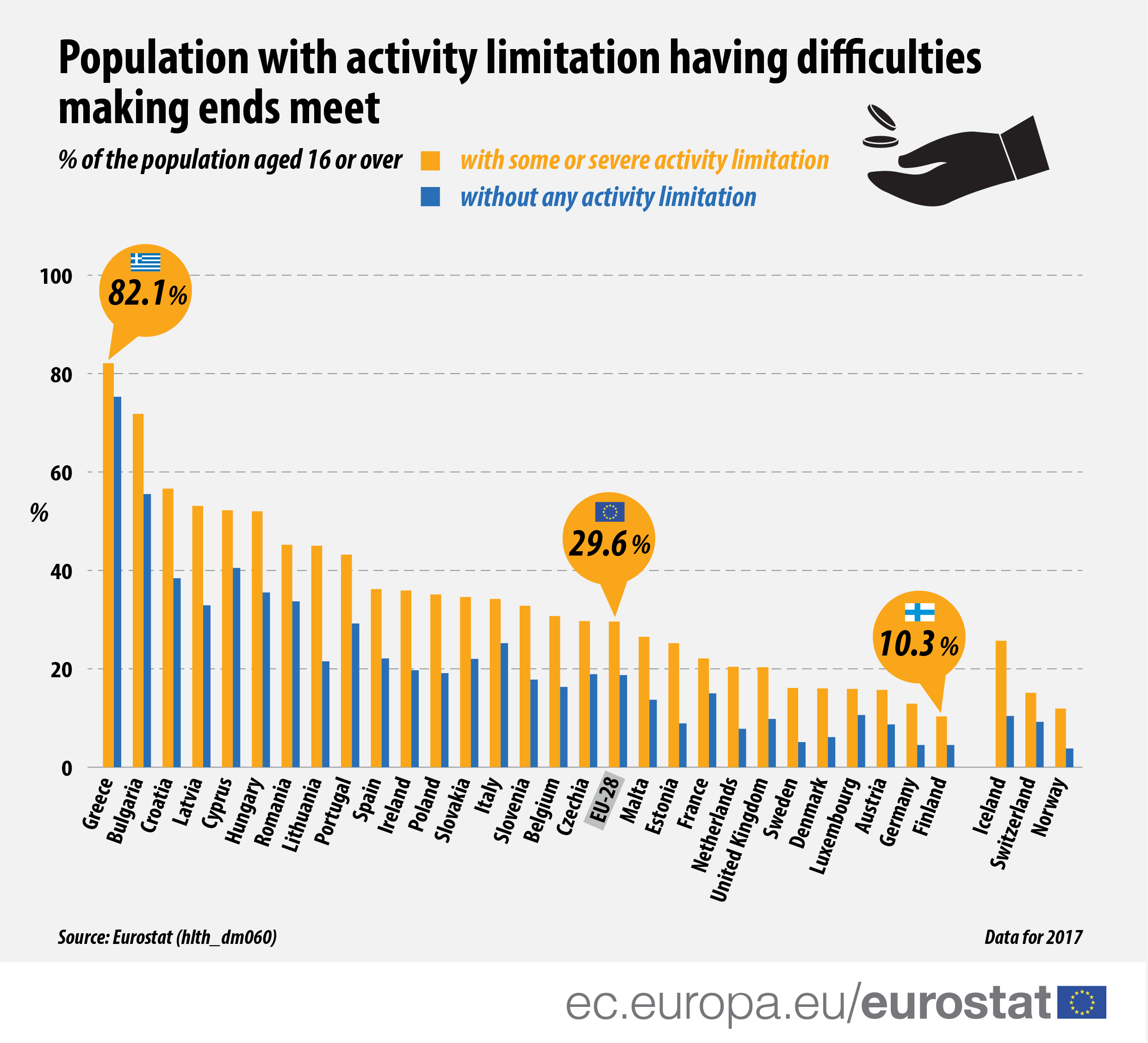
In 2017, 29.6% of adults in the EU with a disability (activity limitation) lived in households that reported difficulties in making ends meet (i.e. whose financial resources did not cover their usual necessary expenses), compared with 18.7% among the adult population with no disability. The proportion of people with a disability who faced financial difficulties was above 50% in Greece (82.1%), Bulgaria (71.8%), Croatia (56.6%), Latvia (53.1%), Cyprus (52.2%) and Hungary (52.0%) and below 20% in Sweden (16.1%), Denmark (16.0%), Luxembourg (15.9%), Austria (15.7%), Germany (12.9%) and Finland (10.3%).
Housing cost burden heavier for people with disability
In the EU, if housing costs are greater than or equal to 40% of disposable income, this is deemed an overburden (housing cost overburden rate).
In most countries, people with disabilities live in households where housing costs place a heavier burden on disposable income. In the EU, the housing overburden rate was 12.5% for people with a disability compared with 9.9% for those with no disability.
The housing cost overburden rate for people with a disability ranged from 1.8% in Malta and 2.7% Cyprus, to over 20% in Germany, Denmark and Bulgaria, and over 30% in Greece.
For further information, see the Statistics Explained articles Disability statistics - housing conditions and Disability statistics - financial situation.
To contact us, please visit our User Support page.
For press queries, please contact our Media Support.


